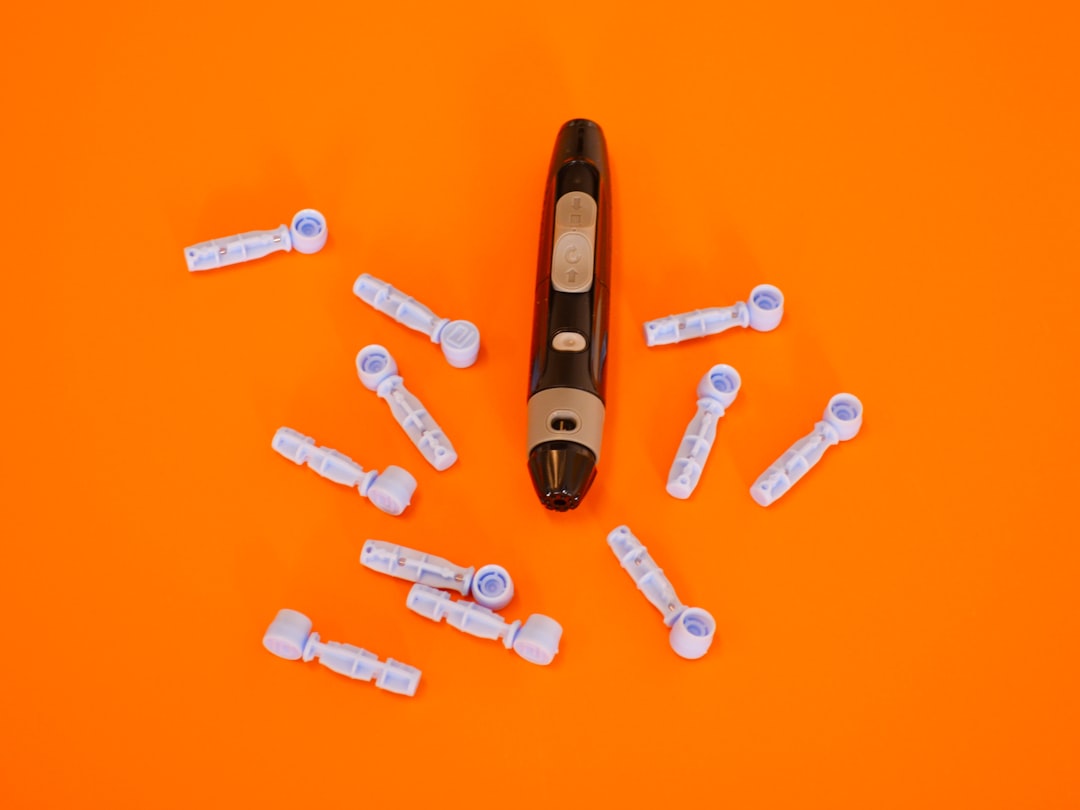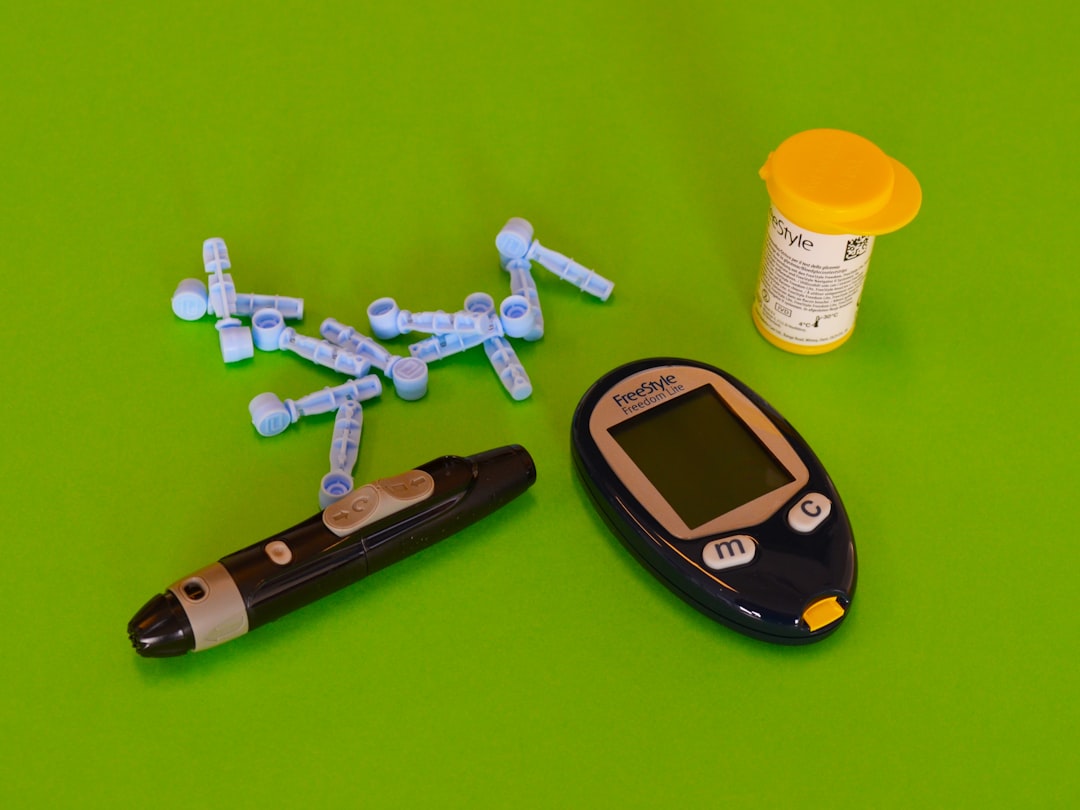Diabetes and stress—two words you might not often expect to see linked. However, the connection between them is worth exploring, especially for those managing diabetes. Stress doesn’t just affect your mental health; it can significantly impact blood sugar levels too. When you’re under stress, your body releases hormones like adrenaline and cortisol. These hormones can cause a rise in blood sugar, making diabetes management more challenging. Understanding this link is crucial for effective stress and blood sugar management.
The Biological Connection Between Stress and Diabetes
 Image courtesy: Unsplash
Image courtesy: Unsplash
Understanding the relationship between stress and diabetes is critical for managing both conditions effectively. While many are aware of the psychological effects of stress, fewer may realize that stress can also have tangible biological effects on the body, particularly affecting individuals with diabetes. Stress can complicate how the body manages and responds to insulin, a key hormone for controlling blood sugar levels.
How Stress Hormones Affect Blood Sugar Levels
At the core of the biological response to stress are hormones known as glucocorticoids, which include cortisol. When you experience stress, your body enters what’s known as the “fight or flight” response. This physiological reaction is designed to prepare your body to face a threat. As part of this response, your adrenal glands release stress hormones like adrenaline and cortisol.
Adrenaline is known to cause a rapid increase in blood sugar levels. This is because it provides your body with a quick source of energy by converting glycogen stores in the liver back into glucose. However, adrenaline’s effects are relatively short-lived. Cortisol, on the other hand, has a longer-lasting impact. It works to keep blood sugar levels elevated to ensure a sufficient energy supply. While these processes are normal and fine-tuned for dealing with immediate threats, they pose significant challenges for those managing diabetes.
For someone with diabetes, the increase in blood sugar due to stress can make it difficult to maintain target glucose levels. Since the body’s ability to regulate insulin can be impaired in diabetic individuals, this stress-induced rise in blood sugar can result in prolonged hyperglycemia, leading to complications if not managed properly.
The Role of Cortisol in Diabetes Management
Cortisol’s role in the body is not limited to responding to stress. It also regulates various bodily functions, including the metabolism of carbohydrates, fats, and proteins. For people with diabetes, the increased presence of cortisol can disrupt these processes, making it more challenging to manage blood sugar levels.
Cortisol decreases the effectiveness of insulin, which can lead to what is known as insulin resistance. When insulin is less effective at helping glucose enter cells, blood sugar levels remain high. This phenomenon can worsen symptoms in individuals with Type 2 diabetes, where insulin resistance is already an issue, or complicate management for those with Type 1 diabetes.
Healthcare providers frequently counsel diabetic patients on the importance of stress management as part of comprehensive diabetes care. It not only helps in maintaining better blood sugar control but also reduces the risk of long-term complications associated with erratic glucose levels.
Psychological Impacts of Stress on Diabetic Individuals
Aside from its physical impact, stress is also a significant psychological burden for people living with diabetes. Understanding this connection can help in managing the emotional and behavioral challenges that stress imposes, which can, in turn, influence physical health.
Stress-Induced Behaviors and Diabetes Complications
When stress levels rise, they often lead to behaviors that can generate additional complications for those managing diabetes. Emotional eating is a common response to stress. Many people may gravitate towards high-sugar or high-fat foods as a form of comfort. This can lead to spikes in blood glucose levels, derailing well-laid management plans.
Additionally, stress can adversely affect motivation levels. This may result in a decreased willingness to engage in regular physical activity, which is a crucial component of diabetes management. Exercise helps to reduce blood sugar and improve insulin sensitivity, but stress can make it more difficult for individuals to stick to an exercise regimen.
It’s worth noting that some individuals may neglect aspects of diabetes management altogether during stressful periods, such as skipping blood glucose testing or medication doses. These stress-induced behaviors can exacerbate diabetes complications, making proactive stress management even more vital.
Mental Health Challenges Related to Diabetes
Living with diabetes can already be demanding, and stress adds another layer to this complexity. Many individuals with diabetes experience heightened levels of anxiety and depression, which can further complicate disease management.
Anxiety about maintaining blood sugar targets, fears of complications, or the overwhelming burden of daily disease management can exacerbate stress levels. This contributes to a detrimental cycle where stress triggers mental health challenges, and these challenges, in turn, worsen diabetes control. Depression, a common concern in diabetic individuals, is associated with poorer diabetes outcomes and increased risks for complications.
Recognizing the signs of mental health struggles and seeking professional help is crucial. Therapeutic techniques such as Cognitive Behavioral Therapy (CBT), mindfulness, or engagement with support groups can provide much-needed relief and foster better diabetes management.
The Vicious Cycle of Stress and Poor Diabetes Control
The relationship between stress and diabetes is best described as a vicious cycle. Stress can lead to poor diabetes management, which causes blood sugar levels to become erratic. Unstable blood glucose can contribute to physical symptoms such as fatigue and irritability, which further elevate stress levels. This unending cycle often exacerbates both conditions, making it difficult for individuals to break free without targeted interventions.
To mitigate this cycle, strategies such as establishing a robust daily routine, practicing relaxation techniques, and developing a supportive network can be instrumental. Yoga, meditation, and deep breathing exercises are highly recommended stress-reduction practices that can reduce cortisol levels and promote better glucose control.
Moreover, education about the interrelationship between stress and diabetes empowers individuals to take charge of both their mental and physical health. Healthcare providers play a key role in this educational approach, offering guidance on managing stress alongside medical treatment for diabetes.
In conclusion, understanding the nuanced relationship between stress and diabetes is central to effective disease management. By addressing both the physical and psychological aspects, individuals can gain better control over their health, leading to improved quality of life and reduced risks of complications. Trustworthy and supportive resources, combined with personalized care strategies, are essential tools for those navigating the challenges of diabetes in the face of stress.
Effective Stress Management Techniques for Diabetics
 Image courtesy: Unsplash
Image courtesy: Unsplash
Living with diabetes can sometimes feel overwhelming, and stress can further complicate the management of this condition. However, integrating effective stress management techniques into your daily routine can make a significant difference in managing your blood sugar levels and mental health. Here are some practical strategies to help you navigate stress while living with diabetes.
Mindfulness and Relaxation Strategies
Mindfulness and relaxation can be powerful allies in reducing stress and improving overall health. Iinvolves focusing your attention on the present moment without judgment, which can help decrease anxiety and stress. Practices such as meditation, deep breathing exercises, and yoga are great ways to cultivate mindfulness.
– Meditation: Engage in short meditation sessions daily, even if just for five minutes. This can help center your mind and reduce stress levels.
– Deep Breathing: Whenever you feel stressed, take a moment to practice deep breathing. Inhale slowly through your nose, hold your breath for a few seconds, and then exhale slowly through your mouth. This practice helps induce relaxation by reducing the body’s stress response.
– Yoga: Yoga combines physical movement, meditation, and breathing exercises, making it particularly effective. It not only relaxes the mind but also enhances physical flexibility and strength.
Importance of Physical Activity
Regular physical activity is a cornerstone of diabetes management and a proven method for reducing stress. Exercise releases endorphins, the feel-good hormones, which can elevate your mood and provide a natural stress relief mechanism.
– Daily Walks: Incorporate brisk walks into your daily routine. Walking is a low-impact exercise that can significantly improve your blood sugar levels.
– Aerobic Exercises: Activities such as swimming, cycling, or dancing increase your heart rate and promote cardiovascular health. Aim for at least 30 minutes of aerobic exercise most days of the week.
– Strength Training: Include strength training exercises a few times a week. Lifting weights or using resistance bands can boost your metabolism and muscle mass, aiding in better blood sugar control.
Building a Support Network
Creating strong social connections can be incredibly beneficial for managing stress and diabetes. A supportive network provides emotional assistance, encourages healthy habits, and can lead to a better understanding of your condition.
– Family and Friends: Share your experiences with family and friends. Their support and encouragement can help you maintain your stress management strategies and boost your morale.
– Support Groups: Join a local or online diabetes support group. Connecting with others who are going through similar experiences can provide comfort, practical advice, and motivation.
– Professional Help: Consider speaking with a mental health professional specializing in chronic illness. Therapy or counseling sessions can offer tailored strategies to manage stress and address any mental health concerns.
Incorporating these management techniques can make managing diabetes more manageable and improve overall well-being. When stress is effectively controlled, it becomes easier to live a balanced life while maintaining optimal health. Don’t hesitate to explore new methods and seek support along the way, as small changes can lead to significant improvements in your health and happiness.
Conclusion
In conclusion, effectively managing stress is essential for maintaining balanced blood sugar levels and improving overall diabetes management. By recognizing stressors and employing practical stress-reduction techniques, individuals can take meaningful steps toward better health and mental well-being. Remember, small changes can make a significant difference in your day-to-day life. Whether it’s practicing mindfulness, engaging in regular physical activity, or seeking support from loved ones, these strategies can empower you to take control of your diabetes management journey. Don’t hesitate to reach out to healthcare professionals for personalized guidance on managing stress and diabetes. Together, you can create a plan that supports both your mental and physical health.

